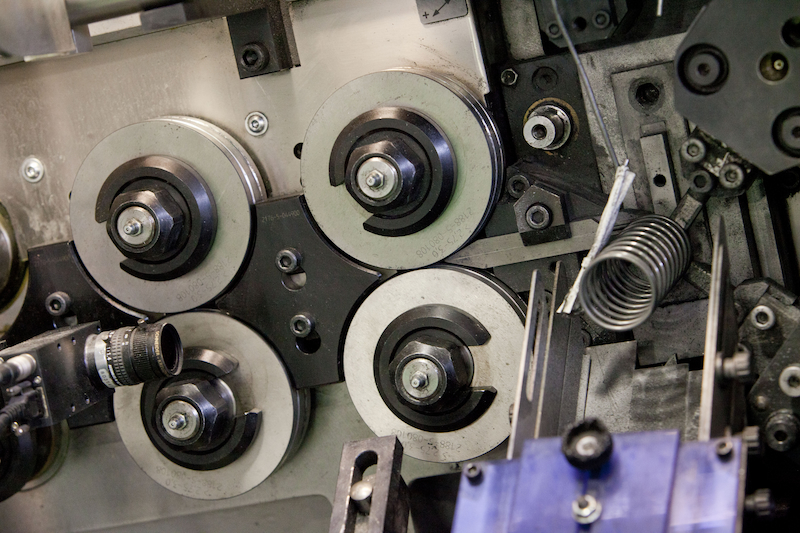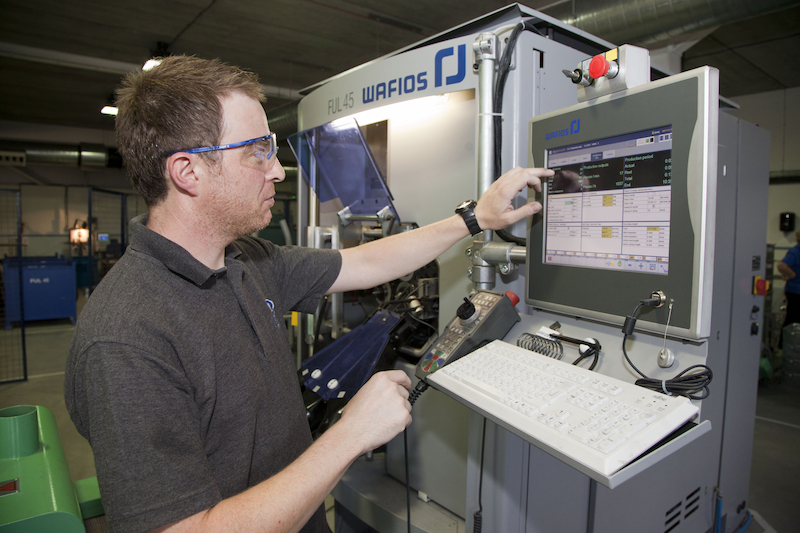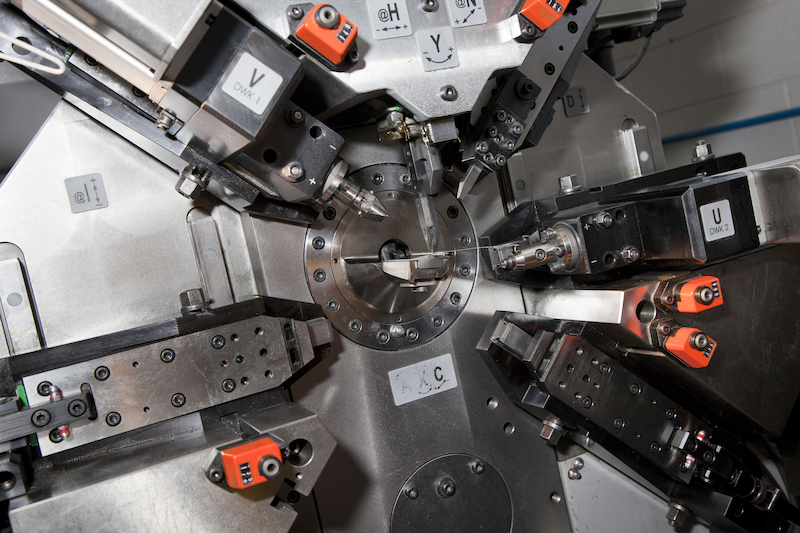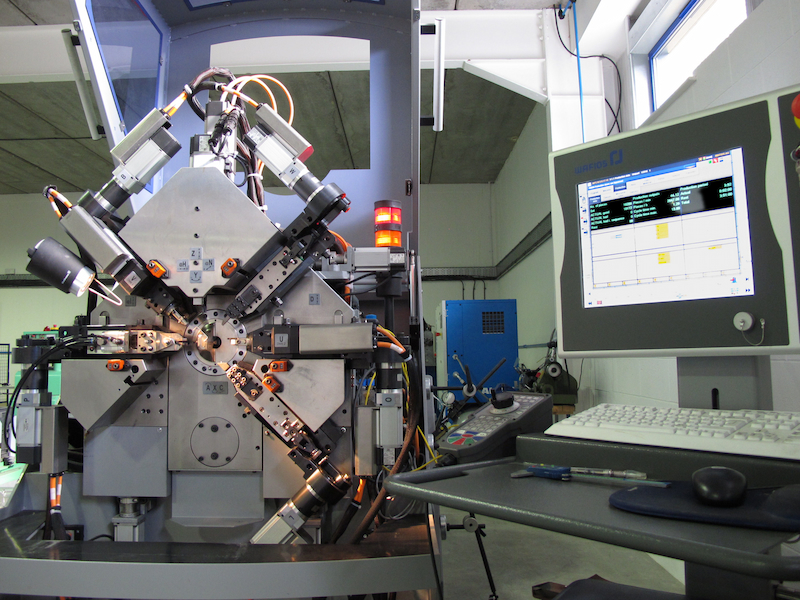Efficiency in manufacturing is key to reducing lead times whilst ensuring high standards are maintained throughout all stages of production. Automation plays a big role in the smooth running of processes, balancing high output with high quality and reducing the risk of error. There is a tendency to assume that automation in manufacturing comes at the sacrifice of jobs for real people, but the reality is quite the opposite. Today, we’re discussing how automation boosts efficiency in manufacturing not only across production but for employees and the environment.

What is Automation in Manufacturing?
Automation in manufacturing involves strategically implementing machines and software, like 123insight at Airedale Springs, to perform tasks without the need for input from a human operator. The duties performed usually include things like:
- Processing
- Production and assembly
- Quality control
- Stock monitoring and management
- Material purchasing
Many of these processes are repetitive. Automation allows employees to focus on tasks that require human skill or critical thinking rather than getting bogged down in menial jobs that a machine can easily perform. Still, the benefits of automation reach far beyond just handling repetitive, tedious processes.
Increased Speed of Production
Machines are much faster at performing certain tasks than humans. For example, as spring manufacturers, we have a range of wire forming and coiling CNC machines capable of producing hundreds of high-quality springs a minute. By comparison, a human operative would only be able to produce a handful of springs in the same time frame. This increase in production speed leads to an increase in manufacturing capacity and reduces lead times for our customers.

Improved Quality
Automation not only allows for high output but also increased and consistent quality. When humans perform a task, it can generally be assumed that an increase in speed decreases the quality of the work being carried out. However, automation shines when maintaining quality through repetitive, precise processes. Machines don’t tire like humans do and can continue to perform tasks with the same level of accuracy, with significantly smaller margins of error, for much longer. Here at Airedale Springs, utilising automation across our production ensures we’re consistently producing high-quality springs for our customers.
Reducing Costs
Embracing automation can aid in reducing manufacturing costs, and although the upfront investment in machinery and systems may seem steep, it’s a worthy investment when you consider the benefits.
By investing in automation, manufacturers can remove unnecessary labour costs and focus on upskilling their existing workforce. The time and money freed up by automation can be spent training current workers in specialist areas, giving them the skills they need to maintain, adjust and improve upon existing processes.
The reduced margin of error that comes with automation also results in less wasted material. ERP systems like our 123insight can manage stock and help us make informed decisions on future material purchasing, ensuring we can get the best quality materials for our spring design for the best price.

Consistent Workflows
Automating processes means less unforeseen disruption across production lines. As touched upon earlier, machines don’t need to take breaks in the same way human workers do; once their programmed and running, they will keep performing their job to the same standard. This consistent workflow contributes heavily to reduced lead times and improved output, offering a faster return on investment for the business and a better quality product for the customer.
Workspace Safety
Many manufacturing processes come with high levels of risk to employee safety. They involve using complex pieces of machinery, and although it is of the utmost importance that workers are trained on any equipment they are using, there are always risks involved, particularly when you factor in human error. As wire form manufacturers, we understand the importance of due diligence in all health and safety procedures in the manufacturing process and use automation to safeguard our employees.
Automation helps mitigate some of the risks presented when using industrial machinery. For example, the less hands-on a worker needs to be when operating dangerous equipment, the less chance they have of causing injury to themselves or others.

Investing in People
Here at Airedale Springs, we’re big believers in investing in our employees and inspiring the next generation through manufacturing apprenticeships. Automation helps us to achieve this by diverting those repetitive processes away from real people, whose time is best spent learning new skills, innovating and finding better ways to do things. For example, a CNC machine may produce hundreds of compression springs a minute, but it cannot think, evaluate and improve as our team can.
Automation also presents entirely new skillsets since the machines and software used to achieve automation need to be programmed and instructed on what to do. This is a fantastic opportunity for workers who would otherwise have spent their days operating machinery to learn how these systems work and how to programme and improve them. Skills like this are incredibly desirable in the modern manufacturing world. With engineers in high demand, they will set people up for a long and successful career in the industry.
The ways in which automation in manufacturing can improve efficiency are far-reaching and continuously being improved. Here at Airedale Springs, we use automation to ensure our customers receive high-quality springs and wire forms. If you would like any more information about our work, please do not hesitate to contact us today.

